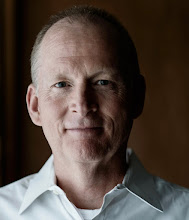 The following post by Joel J. Miller offered me in the midst of a crazy busy day some much needed perspective. Read Joel's words and be encouraged.
The following post by Joel J. Miller offered me in the midst of a crazy busy day some much needed perspective. Read Joel's words and be encouraged.In movies the hero runs headlong up against a problem, something that threatens his peace, safety, and happiness. If the screenwriter is at all talented, we quickly sympathize. We have troubles of our own, after all, and our sympathy and identification increase as the story intensifies. Every twist and turn of the plot worsens our hero’s position to the problem until, when all appears most dire, he finally prevails. The problem is resolved and peace, safety, and happiness are restored. The hero triumphs. All is well. We breathe easy.
It's a hopeful and satisfying formula. It presents a picture of life that has certain, limited conflicts that can be definitively overcome, in which there’s real justice, real healing, real finality to evil and toil and trouble. That's what we want. We pine for that point when we no longer have to struggle against the myriad besetting troubles of the day, when we can cease worrying and stressing and striving. We crave that singular, momentous victory at the close of Act 3 which rescues all of our imperiled peace, safety, and happiness, when we triumph, all is well, and we can breathe easy.
Pardon the moment of negativity, but real life is snickering. There are no certain, limited conflicts that can be definitively overcome. There are untold millions of them, one after another, several all at once. And no matter what you do, they just keep coming. If you make your numbers in July, you have to do it again in August and September and October. If you take superlative care of Customer A, Customers B, C, D, E, F, and G are waiting on hold, annoyed by the music, and wondering why you haven’t helped them yet. Meanwhile you've got bills to pay, discipline issues with the kids, a spouse who feels neglected or exhausted or restless or bored or all of the above.
There is good news coming, but hang with me here a bit longer. The illusion of the formula is doubly problematic when it affects our spiritual life, when we think that we will at some point (hopefully in the very near future) reach a place of total peace without struggle, of quickly answered prayer, effortless worship, sunbeams, and butterflies. The truth is that the Christian life is marked by crosses, by thorns in the side, by sacrifice. There's a reason that historically, traditionally, our heroes are all martyrs, men and women famous not for taking up their winnings but laying down their lives.
Real life—physical, spiritual, everything—is composed of innumerable, endless challenges. John Bunyan's analogy works because it's true to life. Christian didn't get beamed to the Celestial City. The story is the journey, not the end. And our personal pilgrim's progress is no different.
Philip of Neri said it well: “One should not wish to become a saint in four days but step by step.”
The steps imply work. They also imply patience. It's going to take time and attention. It’s going to take involvement in the little things, work in the small corners of our lives. We're not going to slay a few dragons and then settle down. There are always more dragons.
All of those frustrations in work and personal life, family and faith, wherever we confront them, are part of our sanctification. They are part of our journey toward holiness. They are the steps we trod. The wonderful truth hidden in this realization is that every little thing greatly matters. It all has significance, the deadlines, the soccer practice, traffic tickets, marriage conflicts, skinned knees, oil changes, all of it. We don't need to experience a singular, defining triumph to win in life. We’re not going to get one anyway. We are given a million little steps that bring us closer to God.
"Take this thorn from me," says Paul.
"Leave it be," says God. "It’s enough that you have my grace."
The deeper hope we can take away from the classic movie formula is that there really is an end, a victory, a Celestial City, an eschaton in which all the foes are turned into friends or turned to their judgment. But while we take hope in that final triumph, our days are filled with little steps. I pray for enough grace to give thanks for each one.

